When it comes to optimizing sites for search engines, many new users have a tendency to stuff their content with keywords. However, this is not a good practice and could lead to over-optimization, which can then lead to being penalized by search engines like Google.
At WPBeginner, we’ve written thousands of articles and optimized them for search engines without stuffing keywords. Over the years, we’ve learned that you should use a tool to check keyword density, assign a primary search term to each post, and use synonyms to add variations.
In this article, we will show you how to avoid keyword stuffing and fix over-optimization in SEO.

What Is Keyword Stuffing?
Keyword stuffing is filling a web page with keywords to manipulate search engines in the hopes of getting higher rankings.
In the early days of search engine optimization (SEO), it was easy to exploit search engines and use keyword stuffing to boost ranking. However, search engines like Google have become a lot smarter and can penalize sites that use this as an exploit.
There are different ways you can do keyword stuffing in your content. For instance, repeating words and phrases unnecessarily, listing or grouping text together unnaturally, or inserting blocks of keywords that appear out of context.
Here’s an example of how using the same keyphrase repeatedly in a single paragraph can lead to keyword stuffing.

Another way site owners can stuff search terms is by adding hidden text to the source code of the page. Users won’t be able to see this, but search engine crawlers will. Google does not like this practice.
That said, let’s look at how keyword stuffing can impact your site’s SEO.
Why is Keyword Stuffing Bad for SEO?
If you’re starting out with WordPress SEO, then it can be easy to get carried away and add the same keyword lots of times in the content. However, you should know that it goes against the web search policies of Google.
This could lead to a Google search penalty, where your site can be demoted in rankings. In worst cases, Google can also remove your page from its search engine results.
Besides that, keyword stuffing also leads to poor user experience because the content can become hard to read. People might not find your content useful and exit the website. As a result, your site might look spammy, and you won’t be able to build a healthy relationship with your audience.
Having said that, let’s look at different ways you can fix over-optimization and avoid keyword stuffing.
1. Measure Your Content’s Keyword Density
The easiest way of avoiding keyword stuffing is by measuring the keyword density of your content. Keyword density checks how many times a search term is used within the content.
You can use WPBeginner Keyword Density Checker to get started. It is a free tool that doesn’t require signup, registration, or installation.
Simply enter the URL or text of your content into the tool and click the ‘Check’ button.
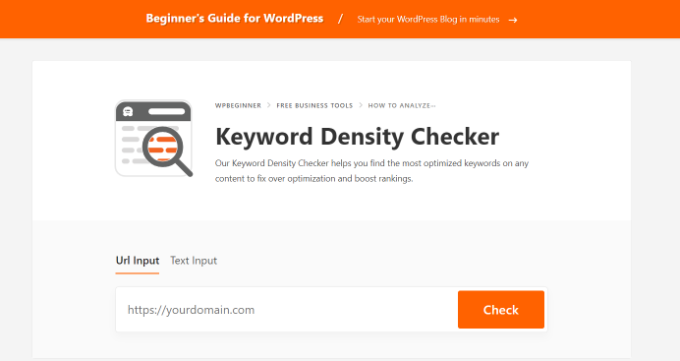
Next, the tool will analyze your content and show you the results.
You can then see how many times a keyword is being used on the web page. For instance, in the screenshot below, you can see the word ‘parrotfish’ occurs 28 times or has a 13.66% density.
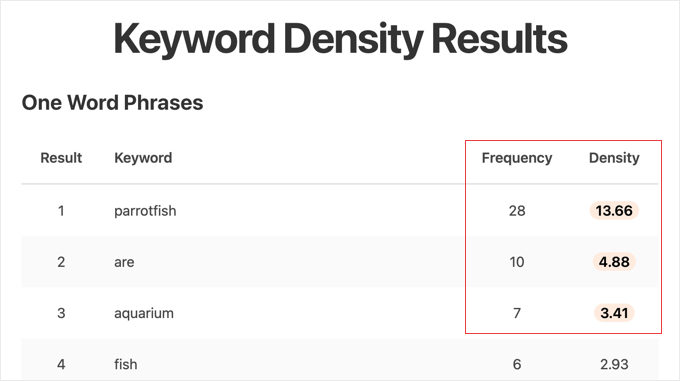
After finding the density of the search term, you can then edit your content and remove words and phrases that are repeated multiple times.
A best SEO practice suggests that keyword density should be around 2%. You can use this as a guideline and ensure your content isn’t over-optimized.
2. Assign a Primary Keyword to Each Content
Another way you can fix over-optimization for SEO is by assigning a primary keyword or phrase to each blog post and page.
You should conduct keyword research and pick a search term that best represents the main topic of your content. This way, your content will focus on a specific issue, and you’ll be better able to fulfill the search intent
If you try to optimize a web page with multiple keywords with different intent, then you’ll leave your site in a big mess. It will confuse search engines from understanding your content and who it is for, which will prevent your page from ranking for the right keyword.
There are different keyword research tools you can use to find the primary search term for your content. We recommend using Semrush, as it is a complete SEO tool that offers powerful features.
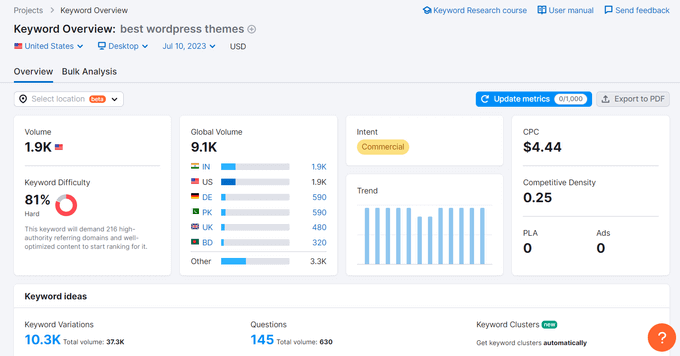
You get a detailed overview of the keyword along with other valuable information. For instance, Semrush shows search volume, intent, keyword difficulty, and more for the search term.
Once you’ve found a primary keyword, you can use the All in One SEO (AIOSEO) plugin to optimize your content for the search term. AIOSEO is the best SEO plugin for WordPress that lets you add focus keyphrases to each post and page.
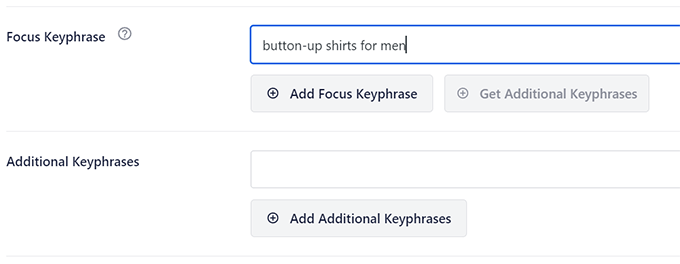
The plugin analyzes your content for the keyphrase, shows a score, and provides tips to improve keyword optimization. AIOSEO also integrates with Semrush to help you find more related keywords.
To learn more, please see our guide on how to properly use focus keyphrases in WordPress.
3. Use Synonyms and Related Keywords
You can avoid keyword stuffing by using LSI (latent semantic indexing) or related keywords for your content.
These are search terms that are closely related to the primary keyword. Related keywords also help search engines better understand your content.
Using different variations of keywords, synonyms, or long tail phrases can also help avoid keyword stuffing. It gives you more flexibility in incorporating different topics into your article.
You can find related keywords using the WPBeginner’s Keyword Generator tool. Simply enter your main search term or topic in the search bar and click the ‘Analyze’ button.
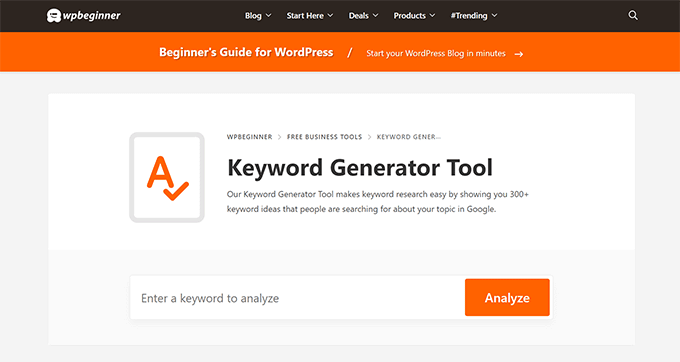
The tool is 100% free to use and generates over 300 keyword ideas.
You can then use different variations in your article to avoid keyword stuffing.
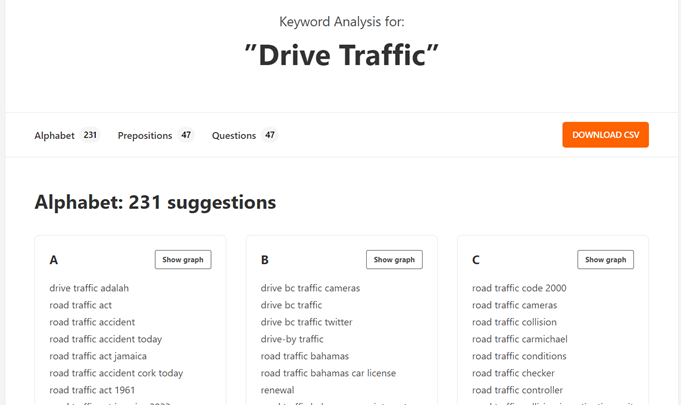
Besides that, you can also search the primary keyword on Google and then scroll down to see related searches.
This will give you even more keyword variations to use in your content and fix over-optimization issues.
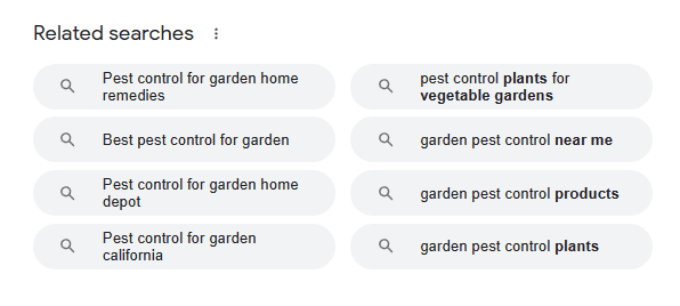
4. Add Value by Extending the Word Count
Next, you can create long-format content to cover the topic in detail and help achieve higher rankings.
Extending the word count gives you the opportunity to cover multiple sub-topics, answer different questions users might have, and easily use long tail keyword variations to avoid stuffing.
This also helps you use different search terms naturally instead of forcing them in every sentence. Plus, it offers a better reading experience for users.
While extending the word count will help avoid keyword stuffing, you should also focus on content quality. Google and other search engines emphasize creating content that’s valuable. So, we recommend writing for your users instead of focusing on keyword placement.
One way of extending the word count and diversifying the use of keywords is by adding a FAQ section at the bottom of the post.
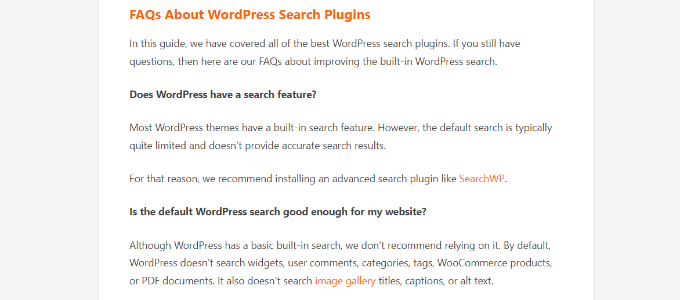
5. Include Keywords in On-Page SEO Optimization
You can also avoid keyword stuffing and fix over optimization by placing the target search term in different places during the on-page SEO process.
On-page SEO is optimizing a webpage for search engines and users. It refers to anything you do on the page itself to boost its rankings in search engine page results (SERP).
By spreading the placement of keywords across different page elements, you can easily fix keyword stuffing issues. For instance, there are different page elements where you can add the main keyword. These include the title, meta description, subheadings, permalink, and more.
With AIOSEO, it is very easy to perform on-page SEO and ensure your content is properly optimized. You can add meta descriptions, focus keyphrases, build internal links, and get suggestions for improvement.
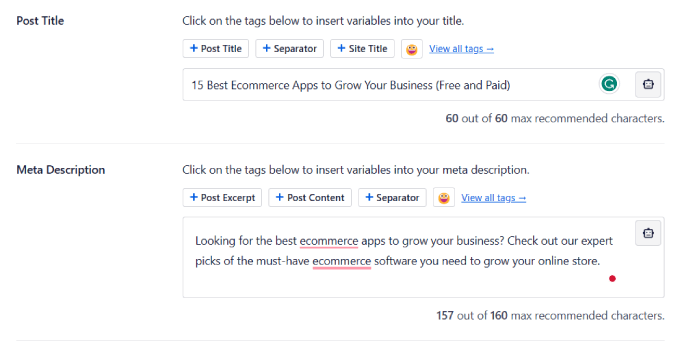
Similarly, adding keywords to image alt text lets you rank for image search and allows you to diversify the use of primary search terms across the content.
It can help show screenshots from your blog post as featured snippets, helping you get more traffic.
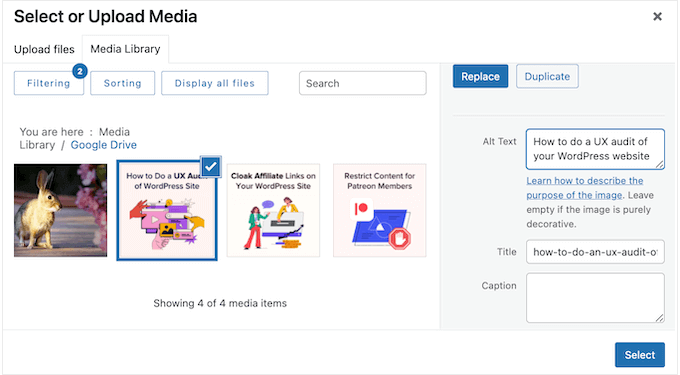
You can learn more by following our tips to optimize your blog posts for SEO.
We hope this article helped you learn how to avoid keyword stuffing and fix over-optimization in SEO. You may also want to see our WordPress SEO checklist for beginners and tips for using Google Search Console to grow website traffic.
If you liked this article, then please subscribe to our YouTube Channel for WordPress video tutorials. You can also find us on Twitter and Facebook.





Samuel
Awesome guide on avoiding keyword stuffing! Over-optimization can indeed harm SEO efforts.
I completely agree that focusing on user-centered content is key. Using natural language and variations helps search engines understand context.
Moinuddin Waheed
Keyword stuffing is of course a bad idea and Google algorithms can penalize a website for this.
But I have a query regarding the keywords that we are focussing in a content.
So if we have around two percentage keyword density in a post, how would Google know that we are targeting for that particular keyword?
I mean we don’t tell Google for this, like we do while optimising for seo to our seo plugins.
we inform plugins, which keywords we are targeting.
WPBeginner Support
Google would use the supporting content to help determine what the article is about. The content itself does not need to use a specific keyword in order to write about the subject of the keyword.
Admin
Mrteesurez
Nice guide, thanks.
The example you gave does not seems to me to be keywords stuffing in as much it’s relevant and natural to the flow of the contents so far we are advised to write for human not for bot.
Although, one needs to limit this as you have adviced us to use keyword density checker.
The only way I think one can use to avoid this is to use synonyms and related keywords, as you have said. Google AI & Algorithm will read the whole contents and understand the intent and the main keywords.
While doing this, I think one has to repeat a particular keyword often so serve as the main contents keyword that the content will rank with.
WPBeginner Support
Don’t forget that your content should be written for your users with search engines in mind and not the other way around
Admin
Mrteesurez
Yeah, that would be the best approach as search engine is the first to rank and showcase the post on a search results page, from which users visit the site and either stay (retain) or move away in seconds.
Both should be considered when writing.
Thanks.
Dennis Muthomi
yeah, even Google Search Liason on Twitter(or X) said that we as publishers should focus on creating content that will help people but not to write content for the purpose of ranking.
Mrteesurez
Thanks for your contribution and the validation you gave on the idea. I will stick to it and put it in mind when writing my posts.
Peter Iriogbe
I must commend the Wpbeginner editor for a well-crafted post.
Though Search engines like Google do not specify the percentage of keyword density that must be included in a blog post the suggestion for using 2% on a blog post by this post editor may sound good. (that is in a case where you have 200 words per post where some SEO expert suggested you place a keyword after every 100 words) However, I suggest that keyword density in a blog post should be determined by the number of words written on it. For example, if a post contains 1000 words, I think a better keyword density should be (10%) 10 times.
Why keyword stuffing might not favor you, Google sometimes needs it to know what your blog post is talking about.
John Muller in one of Google Search update videos states the following:
” I would recommend that if there’s something that you want to tell us that your page is about, make that as visible as possible.
So don’t just put that as a one-word mention at the bottom of your article. But rather, use it in your titles, use it in your headings, use it in your subheadings, use it in captions from images”
Bloggers and content creators should also remember that Google and other search engines appreciate publishers that write people first content -that means, you need to put the interest of your readers in the front rather than stuffing keywords here and there just to gain search engine rankings.
Thanks
WPBeginner Support
Thank you for sharing your feedback an opinions
Admin
Jiří Vaněk
I solve this problem in WordPress by using SEO plugins and I recommend everyone to use them. I used to use Yoast SEO, now I switched to AIO SEO. The big advantage is that you don’t have to watch keywords so much. Whether there are too few or too many in the text or headings is up to the plugin itself. Many times it happened to me that I returned to the article and either added or deleted words. It is a great helper and really the basis of good optimization in WordPress.
Fajri
Right, its totally different with some years ago when SEO means keyword. Now everything is totally about topic and value. Yet, we still need to tell search engine about the topic of our article using keywords. Some plugin like AIO SEO surely can help us applicate keywords better.
WPBeginner Support
We hope the plugin helps with understanding how much to use keywords in your content
Admin
THANKGOD JONATHAN
I have been hearing about keyword stuffing but I didn’t get what exactly it means.
This article has help me a lot. I am sure will edit my articles to avoid keyword stuffing.
WPBeginner Support
Glad we could help clear up some confusion!
Admin
Moinuddin Waheed
keyword stuffing is a common problem mostly done by the new bloggers in hope of getting more organic traffic.
I have also done the same mistake over and again and finally realised that it is not the number of occurrence of a keyword that matter but how appropriately it is placed is what matters.
Thanks for providing the round figure of 2 percentage to keep in mind while writing articles and trying to put as much keywords as possible.
WPBeginner Support
Glad we could share that recommendation
Admin
Jiří Vaněk
I would like to ask about this 2 %. The AIO SEO plugin recommends a keyword density of 0.5 %. So should I take it as a minimum value? Or why AIO SEO recommends 0.5 % and you recommend 2 %?
WPBeginner Support
It would depend on the content you have on that page but that is likely a minimum.
Peter Iriogbe
Additionally, the difference lies in the approach. AIO SEO sets a lower limit, while a 2% recommendation might emphasize a bit more keyword usage for better visibility. The key is finding a balance that feels natural in your writing without overusing keywords, as both too little and too much can impact SEO.